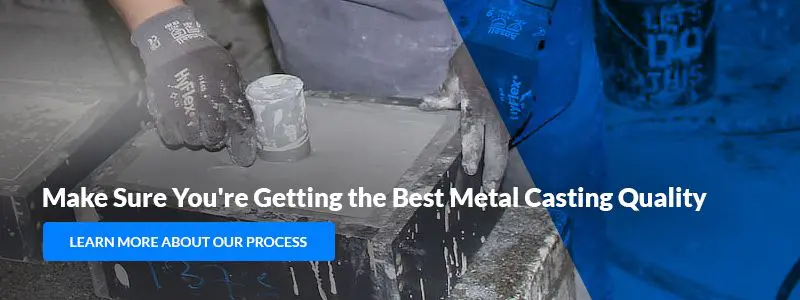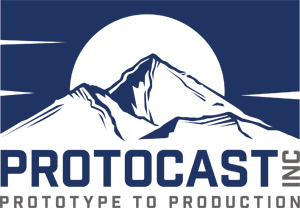
September 1, 2017 | Prototype Casting
Even More Metal Casting Safety Tips
They say that you can never be too safe, and when it comes to something as serious as dealing with molten metal, that’s absolutely the case. Well, we’re not exactly sure who originally said that, but the point remains true that safety is our number one priority in our metal casting and rapid investment prototyping operations.
Prototype Casting is committed to providing your business operation or industry with reliable, accurate and detailed prototypes so that you know what your production will be like before you begin mass-producing. As such, our metal casters and forgers only use the highest quality alloys and best practices to make the ultimate creation. As a follow-up to our previous post about basic safety pointers in the metal casting industry, as we’re going to continue briefly touching on some of these important safety measures.

Use Clean, Dry Metal
Making sure that clean, dry metal with a cleared-off surface is used is essential to mitigating poor air quality. Impurities on the surface of the molten metal may, in fact, become an airborne breathing hazard, like in the case of lead paint. Making sure that the surface of the metal is good to go before applying heat or pressure is essential to our operation.
PROCESSES
Preheating
Preheating all metal and furnace tools that are used in the operation will greatly reduce the risk of condensation, as well as from furnace recharge metal from steam explosions occurring in the melt. In this case, it is better to have less temperature variation between the rapid prototyping tools we use and raw materials.
Move Slowly and Carefully
Our people are careful to move the melt (molten metal) very slowly and only for a very short distance to a flask. Generally, liquid metal is ‘runnier’ than water in the sense that it can and will splash further than water does, so moving the melt slowly and not very far will help minimize the possibility of spills, splashes, and so forth.
Know What Kind of Metal Is Being Melted
This one might sound obvious for an industry that specializes in metal manipulation and foundry, but it is very important to know the exact characteristics of the metal that you’re working with and melting down. Characteristics of metal, such as the melting temperature, are good to know before one starts melting to help with understanding melt times, viscosity content, and any potential adverse health effects that hazardous alloys like lead, zinc or aluminum are known for.
Comprehensive First Aid Setup
First aid is essential to immediately treating any sort of injury, accident and so forth, and of course, that is not just limited to the aluminum casting industry. Despite even the best planning, maintenance, and diligent care, sometimes accidents occur, and that’s why we’re prepared in case anything bad should occur. Conveniently located and easy-to-access first aid kits should be placed throughout the foundry to ensure immediate first aid, with an emphasis on burn control items like cling wrap plastic, gels, and so forth.
We Take Safety, Quality, and Attention to Detail Seriously
While the safety and well-being of our team is priority number one here at Prototype Casting, our metal foundry also places a lot of importance on the quality of our production and the attention to detail that we put into custom molding your very own prototype. We want the people we work with to be happy, satisfied, and absolutely sure about what their production will look like based on the original prototype we create.
Prototype Casting has long been serving the Denver area for all of your rapid investment casting and prototyping needs, and we think that our expertise will surpass your expectations. Learn here about our various processes, or learn more about the kind of alloys that we use. Contact our metal casting company today to get your prototype started!


